SENECA FALLS, Feb. 9, 2022 — Twelve days before the November election, the Texas-based owner of Seneca Meadows Inc. contributed $200,000 to an advocacy group devoted to helping a pair of Republican candidates win seats on the five-member Seneca Falls town board.
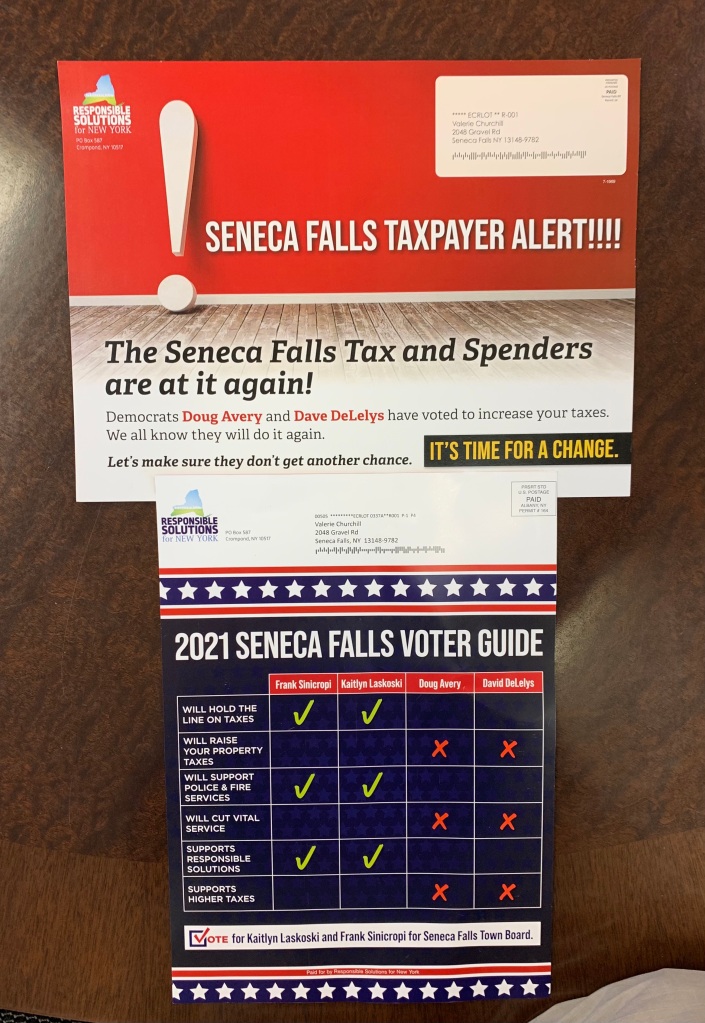
Frank Sinicropi and Kaitlyn Laskoski went on to defeat two incumbent Democrats who had voted against granting SMI, the state’s largest landfill, a local operating permit and had favored closing the waste facility for good in 2025.
Last week the new board members voted to grant the landfill its local permit without conditions despite objections from opponents who said uncontrolled SMI odors continue to violate state and local laws.
The $200,000 check from Waste Connections Inc., the nation’s third largest waste management company, dwarfed the total combined campaign contributions reported by the four candidates, which totaled less than $5,000.
The out-of-state contribution to Responsible Solutions for New York (RSNY) helped fund a public relations blitz aimed at convincing voters that closing the landfill would drive up their property taxes.
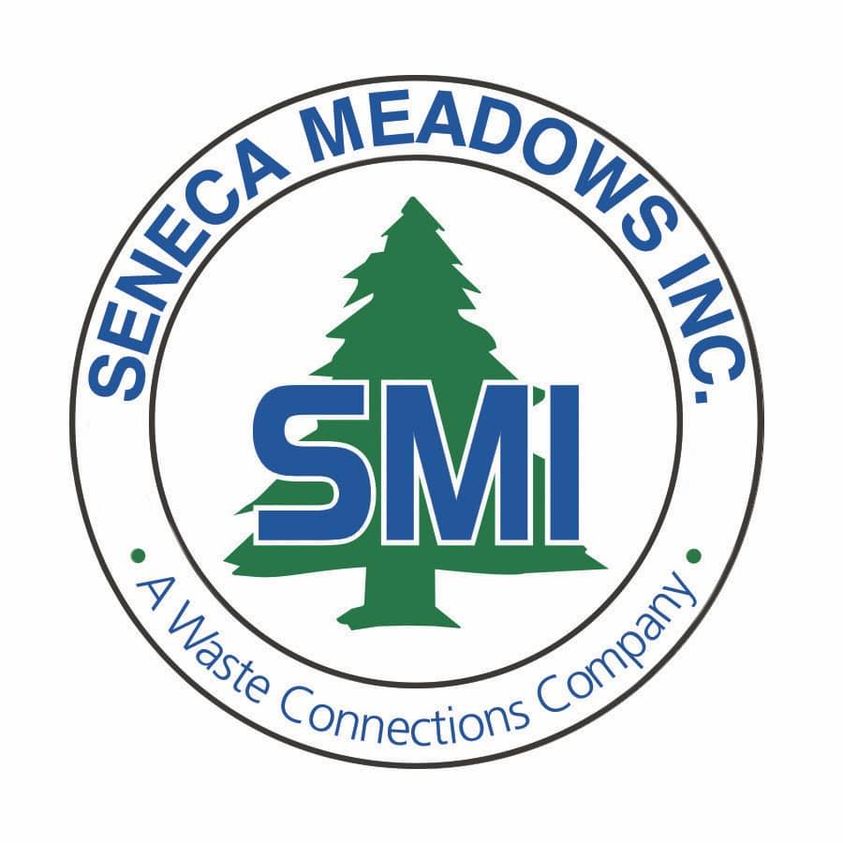

The PR initiative featured newspaper ads and campaign flyers for Sinicropi and Laskoski, who easily defeated Democrats Doug Avery and Dave DeLelys.
The big check dated Oct. 21, 2021 was first reported on RSNY’s required state campaign finance disclosure documents on Jan. 19. Waste Connections reported total contributions of $282,643 to RSNY last year.
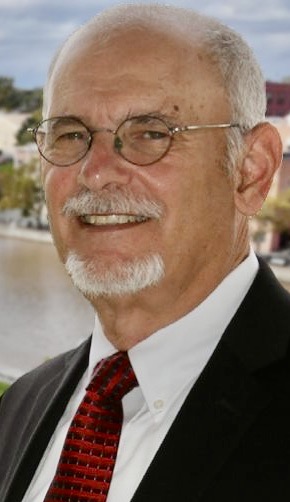
“I am blow away by it,” Avery said yesterday. “I thought what they spent two years ago was an obscene amount.”
During the 2019 town board campaign, Waste Connections made cash and in-kind contributions of about $95,000 to RSNY toward its successful efforts to help two other Republicans, Mike Ferrara and Dawn Dyson, win Seneca Falls board seats
In the 2019 election, Ferrara edged Avery by about 80 votes in the race for town supervisor. Days later, Ferrara said he had not solicited Waste Connections’ contributions on his behalf or even known about them. “Personally, I think it was a negative impact on me,” he said at the time.
RSNY’s expenditures fell far short of the roughly $300,000 it received in contributions, although it did report paying $77,176 to Mercury Public Affairs for polling, campaign consulting, campaign literature and other unspecified items.
One $23,100 payment to Mercury was labeled “other-must provide explanation.”
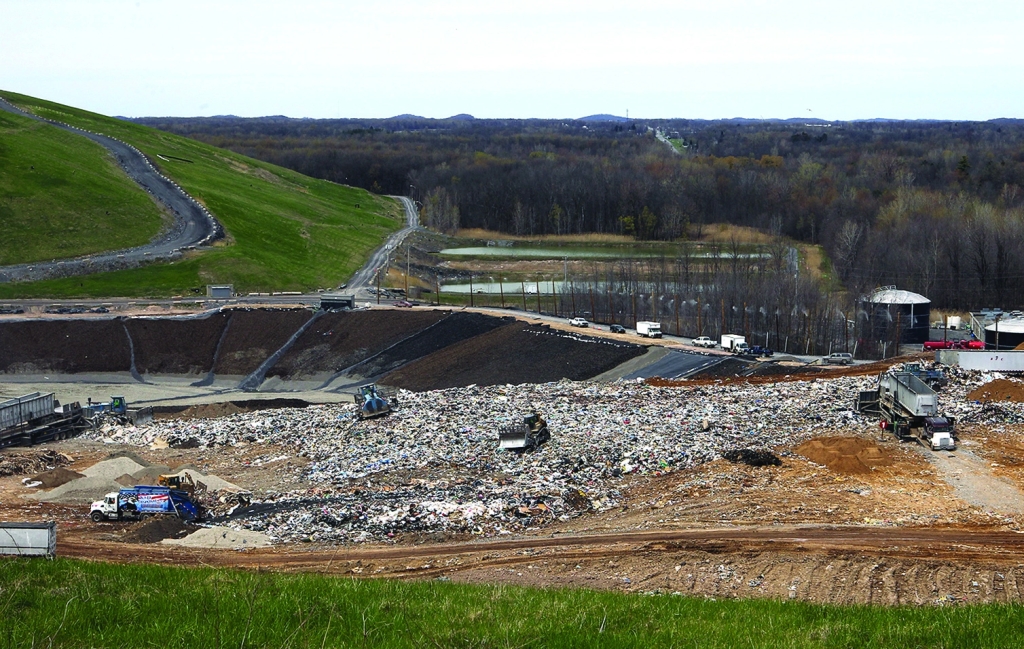
Mercury has also led public relations efforts for another environmentally controversial project in the Finger Lakes: Greenidge Generation’s efforts to expand its Bitcoin mining operation in Dresden.
Mercury recently suffered a mass exodus of key personnel, many of whom, including lobbyist Mike McKeon, joined a new firm, Actum, which is co-headed by Mick Mulvaney, former White House Chief of Staff during the Trump Administration, and several prominent Democrats.
It’s not clear how the departures will affect Mercury’s future work in the Finger Lakes.
Asked today about Waste Connections’ $200,000 check in this year’s race, Ferrara said: “How can I comment on something I don’t know anything about? What was the money used for?” Sinicropi and Laskoski did not return emails seeking comment on Mercury’s advocacy and Waste Connections’ cash contributions on their behalf.
(After this article was published, all three responded. Ferrara said: “I have no clue where $282,000 was spent….The RSNY has zero influence over me. I just do what I strongly believe is the best for the majority of the people in Seneca Falls and doing in the most environmental sound way.” Laskoski said she did not solicit help from RSNY and did not believe it helped her win her seat on the town board. Sinicropi declined to comment after saying: “I don’t want to talk to you. Don’t bother me.”)
After they joined the town board in January, the board voted 4-1 to award the landfill a local operating permit. SMI had operated without one throughout most of 2020 and 2021. Republicans Ferrara, Dyson, Sinicropi and Laskoski voted for the measure, while Steve Churchill, the lone Democrat, voted no.
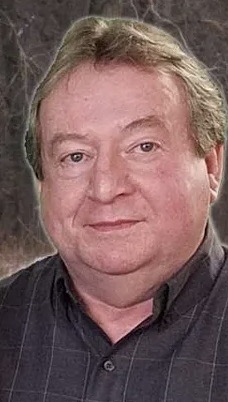
Explaining his objection, Churchill told the board: “We have two conditions for them to meet for us to issue a permit. One is to comply with (state) odor control standards for hydrogen sulfide and the other is to spend up to $20,000 for an effective website for odor reporting. In both cases (SMI) said no. I say no permit as long as they violate (state) regulations and the town code.”
Bill Lutz, founder of Waterloo Container and a longtime SMI opponent, called the $200,000 contribution “astonishing.”
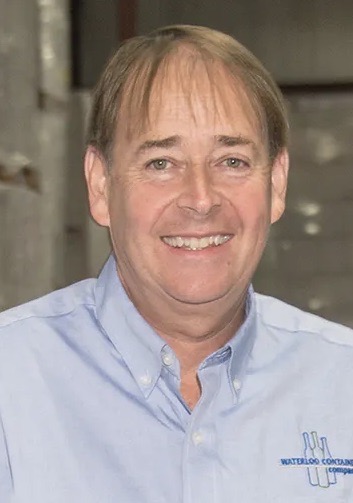
“SMI is an environmental disaster, and yet the money keeps flowing,” he added.
Zamelis noted that the town code and state regulations prohibit “unreasonable” odors. In a Feb. 1 letter to the board, he cited an exhibit showing 452 odor complaint reports filed with the state between 2018 and 2021 “where SMI not only confirmed the citizens’ odor complaints, but also confirmed the landfill was the actual source of the odor.”
Zamelis also sought to detail failures by the state Department of Environmental Conservation’s on-site monitor to thoroughly investigate odor complaints.
Lutz hired environmental attorney Douglas Zamelis to argue against granting the local permit.

“SMI and DEC are either unwilling or unable to control or prevent SMI’s unreasonable odors from adversely impacting Seneca Falls residents and businesses,” he concluded.
Ferrara said today that he had formed a committee of the board “to discuss odor issues and solutions.”
Meanwhile, the DEC is considering SMI’s application to modify its state permit to allow for a 50-acre expansion between two existing mounds of garbage that would provide space for 15 more years of dumping at current rates.
Although the so-called “Valley Infill” application was filed in July 2020, several town board members didn’t learn about it until four months later. In January 2021, the board passed — on a party line 3-2 vote — a resolution asking the DEC to deny the permit modification.
The Democrats who controlled the board before the November election also supported Local Law 3, which requires SMI to close down in December 2025.
Lutz said he expects the new Republican-dominated board to attempt to repeal that law to clear the way for the expansion project. But he said such a repeal would be legally challenging because it would likely require a full environmental impact statement (EIS), which could take years to complete.

“I think they’re running out of time,” Lutz said. “It’s going to take two or three years.”
Churchill said two Waste Connections executives from Texas who met with local officials at the landfill last month brushed aside questions about the company’s political campaign contributions.
“They said that’s not something they were going to talk about,” Churchill said. “They wanted to talk about the Valley Infill project.”
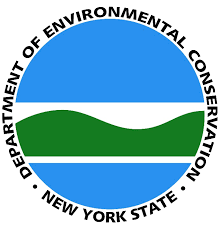
SMI manager Kyle Black did not respond to emailed questions.
Asked to comment on the status of the landfill’s Valley Infill application, the DEC said today:
“Seneca Meadows currently holds a solid waste management facility permit issued by DEC pursuant to the State Environmental Conservation Law and Part 360 series regulations that authorize the facility to operate until Dec. 31, 2025. As noted in its permit, Seneca Meadows is responsible for obtaining any other permits, or approvals that may be required to carry out the activities that are authorized by its DEC permit.
“In July 2020, Seneca Meadows submitted the Seneca Valley Infill Expansion application, with two re-submittals since then. DEC subjects every permit application to rigorous review of all applicable federal and state standards to ensure the agency’s decision is protective of public health and the environment and meets applicable standards, including those related to the CLCPA (the 2019 state Community Leadership and Climate Protection Act).
“DEC is currently reviewing the application materials.”

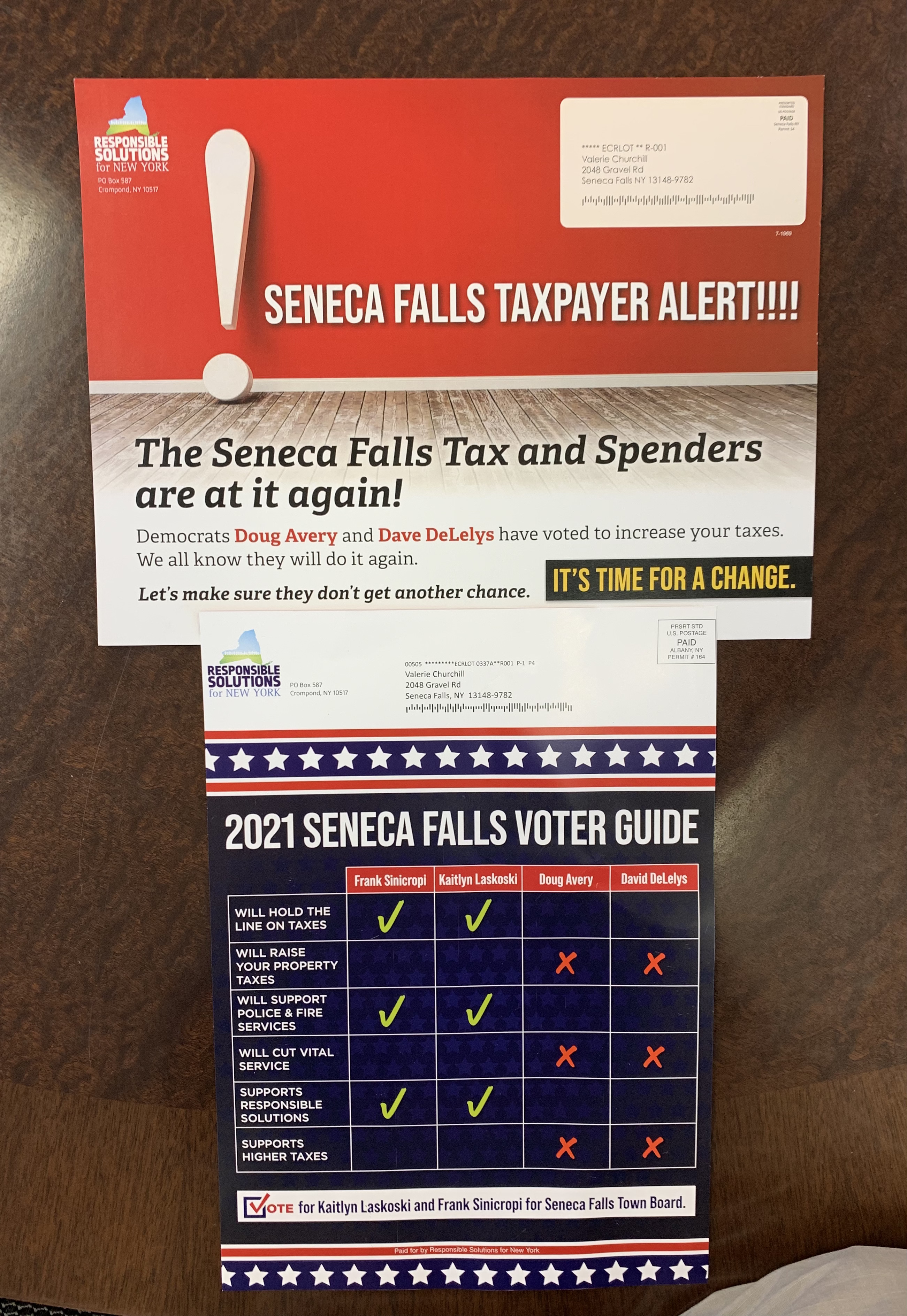
Sad to see that such beautiful places going to “waste” plus the case with the bitcoin mining
LikeLike
OMG how is this allowed to happen? These decisions should be voted on by the general population…..
LikeLike